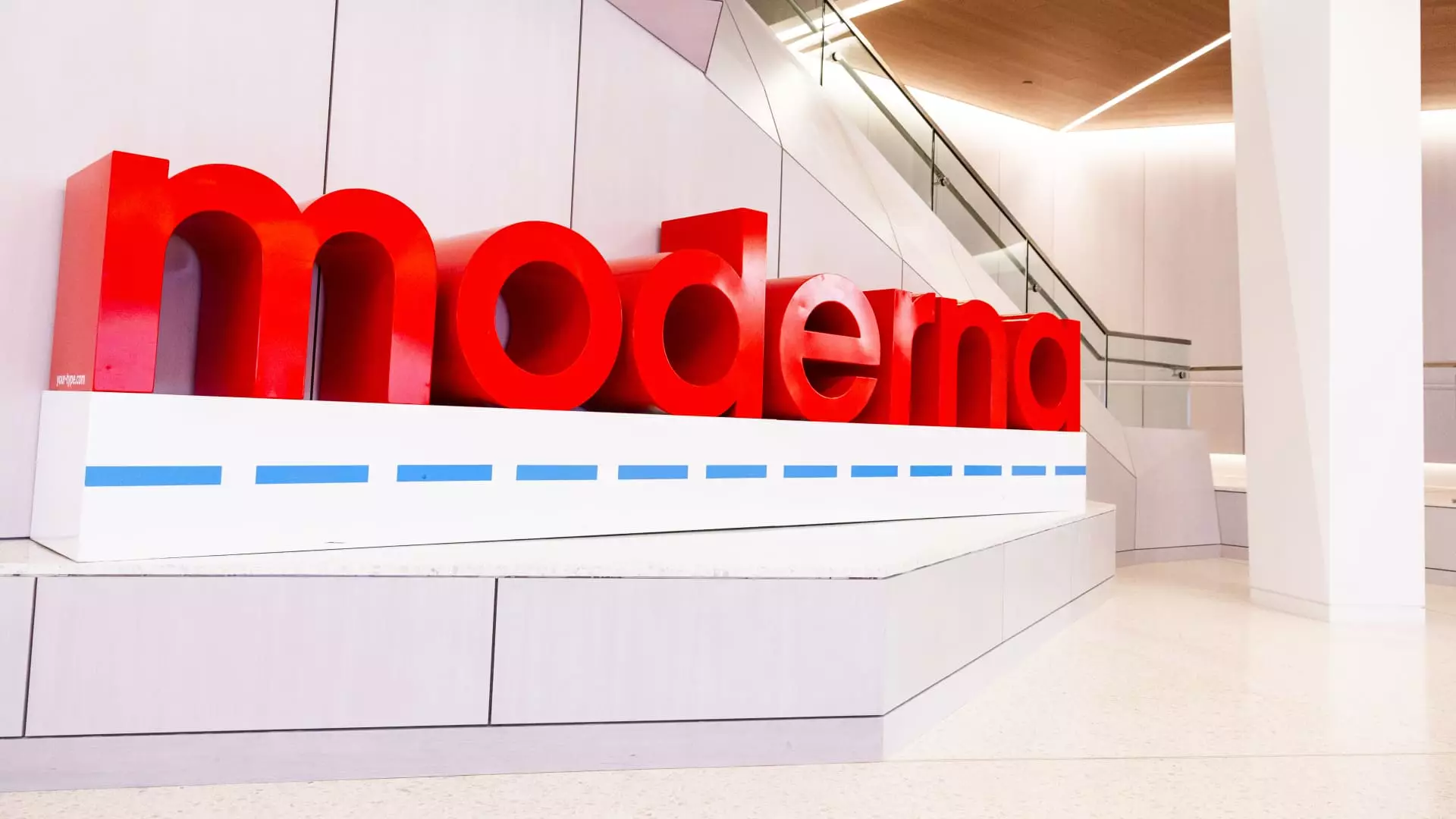Moderna Inc. has experienced a tumultuous ride in its recent financial quarter as it attempts to transition from the Covid-19 pandemic era, marked by unprecedented vaccine demand, to a future dominated by heightened competition and a diminishing market. The biotech giant’s fourth-quarter report for 2024 reveals a complex narrative of financial loss, revenue fluctuations, and strategic decisions aimed at regaining footing in the post-pandemic landscape.
Financial Overview: Declining Revenue Amid Cost-Cutting Measures
On a surface level, Moderna’s fourth-quarter revenue of $966 million exceeded Wall Street’s expectations of $942.8 million, but the underlying figures tell a deeper story. The company reported a staggering net loss of $1.12 billion, equating to a loss of $2.91 per share. This contrasts sharply with a net profit of $217 million, or 55 cents per share, recorded in the same quarter a year prior. Such a drastic shift underscores not only the dwindling demand for Covid vaccines but also the substantial challenges faced by the company as it attempts to pivot from a booming pandemic business model.
Part of this quarter’s losses stemmed from a $238 million non-cash charge linked to ending a contract manufacturing agreement. The sheer size of the net loss indicates the steep costs associated with restructuring and adjusting to the current market, further reflecting the volatility in Moderna’s operational landscape.
Despite the dire financial results, Moderna’s Chief Financial Officer Jamey Mock expressed some optimism, highlighting that the company had effectively reduced costs by 27% compared to 2023. This critical cost management strategy is pivotal as Moderna aims to anticipate further reductions amounting to $1 billion by the end of 2025. Such proactive steps may be essential in addressing the anticipated challenges posed by declining vaccination rates and heightened competition from other pharmaceutical companies in the Covid vaccine market.
Moreover, Moderna reiterated its sales guidance for 2025, projecting product sales between $1.5 billion to $2.5 billion, with an expectation that the bulk of this revenue will be generated in the latter half of the year. However, anticipation of only $200 million in the first half highlights the challenges of seasonality in respiratory product demand, which typically peaks during the colder months. The company previously slashed its sales estimates by $1 billion, a move that severely impacted its stock performance, ultimately leading to a downturn of over 20% in the year.
Delving deeper into the numbers, it becomes clear that the sales figures reflect a significant contraction from the heights reached during the pandemic. Sales from Moderna’s Covid vaccine brought in $923 million, which is a staggering 66% decline from the previous year’s $2.8 billion. This decline can be attributed to multiple factors, including earlier vaccination campaign launches, reduced demand, and a strategic withdrawal from certain advance purchase agreements with various countries. These decisions underscore the fragile position Moderna is in as it confronts the post-pandemic reality.
Interestingly, the company also generated $15 million from U.S. sales of its recently launched Respiratory Syncytial Virus (RSV) vaccine, demonstrating a critical diversification of its product portfolio. The success of this newly approved product may provide a glimpse of hope in diversifying revenue streams beyond Covid. Analysts had initially projected even lower sales for this vaccine, indicating that Moderna might be successfully navigating some uncharted waters beyond its flagship Covid product.
Research and Development: Expanding Horizons
In light of the evident shifts in revenue sources, Moderna is betting heavily on its messenger RNA platform to foster a robust pipeline of future products. With ten new product approvals anticipated over the next three years, Moderna remains committed to innovating. The pipeline includes submissions for a next-generation Covid vaccine and a combination shot targeting both Covid and flu—both of which are crucial in adapting to a changing healthcare landscape.
The company’s dedication to research and development is critical, especially as the competition heats up. Moderna has already submitted three mRNA products for regulatory approval and is also pursuing new avenues, including a personalized cancer vaccine in partnership with Merck. Making these strategic moves may bolster the company’s market position in the future.
While Moderna’s fourth-quarter revenue results present a veneer of resilience, the underlying challenges are critical. The significant loss and falling demand for Covid vaccines are symptomatic of a broader transition the company must navigate. The commitment to cost management and a diversified product portfolio provides a potential roadmap for recovery; however, the road ahead requires careful navigation through financial hurdles and competitive pressures looming on the horizon. As Moderna aligns its strategies to adapt to the evolving healthcare landscape, stakeholders will be closely watching how the company integrates its innovative pipeline with robust market strategies to regain its footing.


Leave a Reply